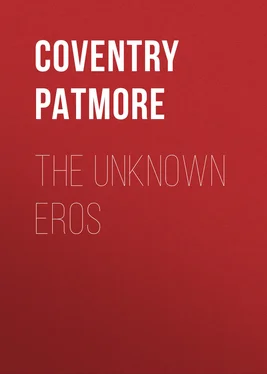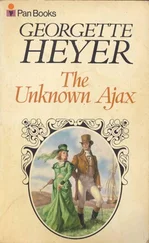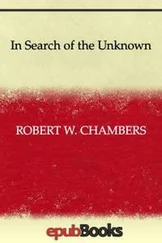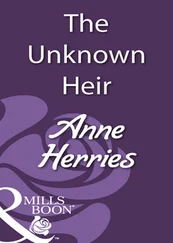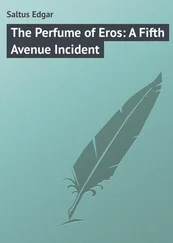Coventry Patmore - The Unknown Eros
Здесь есть возможность читать онлайн «Coventry Patmore - The Unknown Eros» — ознакомительный отрывок электронной книги совершенно бесплатно, а после прочтения отрывка купить полную версию. В некоторых случаях можно слушать аудио, скачать через торрент в формате fb2 и присутствует краткое содержание. Жанр: foreign_poetry, literature_19, Поэзия, foreign_antique, foreign_prose, на английском языке. Описание произведения, (предисловие) а так же отзывы посетителей доступны на портале библиотеки ЛибКат.
- Название:The Unknown Eros
- Автор:
- Жанр:
- Год:неизвестен
- ISBN:нет данных
- Рейтинг книги:4 / 5. Голосов: 1
-
Избранное:Добавить в избранное
- Отзывы:
-
Ваша оценка:
- 80
- 1
- 2
- 3
- 4
- 5
The Unknown Eros: краткое содержание, описание и аннотация
Предлагаем к чтению аннотацию, описание, краткое содержание или предисловие (зависит от того, что написал сам автор книги «The Unknown Eros»). Если вы не нашли необходимую информацию о книге — напишите в комментариях, мы постараемся отыскать её.
The Unknown Eros — читать онлайн ознакомительный отрывок
Ниже представлен текст книги, разбитый по страницам. Система сохранения места последней прочитанной страницы, позволяет с удобством читать онлайн бесплатно книгу «The Unknown Eros», без необходимости каждый раз заново искать на чём Вы остановились. Поставьте закладку, и сможете в любой момент перейти на страницу, на которой закончили чтение.
Интервал:
Закладка:
VII. THE AZALEA
There, where the sun shines first
Against our room,
She train’d the gold Azalea, whose perfume
She, Spring-like, from her breathing grace dispersed.
Last night the delicate crests of saffron bloom,
For this their dainty likeness watch’d and nurst,
Were just at point to burst.
At dawn I dream’d, O God, that she was dead,
And groan’d aloud upon my wretched bed,
And waked, ah, God, and did not waken her,
But lay, with eyes still closed,
Perfectly bless’d in the delicious sphere
By which I knew so well that she was near,
My heart to speechless thankfulness composed.
Till ’gan to stir
A dizzy somewhat in my troubled head—
It was the azalea’s breath, and she was dead!
The warm night had the lingering buds disclosed,
And I had fall’n asleep with to my breast
A chance-found letter press’d
In which she said,
‘So, till to-morrow eve, my Own, adieu!
Parting’s well-paid with soon again to meet,
Soon in your arms to feel so small and sweet,
Sweet to myself that am so sweet to you!’
VIII. DEPARTURE
It was not like your great and gracious ways!
Do you, that have nought other to lament,
Never, my Love, repent
Of how, that July afternoon,
You went,
With sudden, unintelligible phrase,
And frighten’d eye,
Upon your journey of so many days,
Without a single kiss, or a good-bye?
I knew, indeed, that you were parting soon;
And so we sate, within the low sun’s rays,
You whispering to me, for your voice was weak,
Your harrowing praise.
Well, it was well,
To hear you such things speak,
And I could tell
What made your eyes a growing gloom of love,
As a warm South-wind sombres a March grove.
And it was like your great and gracious ways
To turn your talk on daily things, my Dear,
Lifting the luminous, pathetic lash
To let the laughter flash,
Whilst I drew near,
Because you spoke so low that I could scarcely hear.
But all at once to leave me at the last,
More at the wonder than the loss aghast,
With huddled, unintelligible phrase,
And frighten’d eye,
And go your journey of all days
With not one kiss, or a good-bye,
And the only loveless look the look with which you pass’d:
’Twas all unlike your great and gracious ways.
IX. EURYDICE
Is this the portent of the day nigh past,
And of a restless grave
O’er which the eternal sadness gathers fast;
Or but the heaped wave
Of some chance, wandering tide,
Such as that world of awe
Whose circuit, listening to a foreign law,
Conjunctures ours at unguess’d dates and wide,
Does in the Spirit’s tremulous ocean draw,
To pass unfateful on, and so subside?
Thee, whom ev’n more than Heaven loved I have,
And yet have not been true
Even to thee,
I, dreaming, night by night, seek now to see,
And, in a mortal sorrow, still pursue
Thro’ sordid streets and lanes
And houses brown and bare
And many a haggard stair
Ochrous with ancient stains,
And infamous doors, opening on hapless rooms,
In whose unhaunted glooms
Dead pauper generations, witless of the sun,
Their course have run;
And ofttimes my pursuit
Is check’d of its dear fruit
By things brimful of hate, my kith and kin,
Furious that I should keep
Their forfeit power to weep,
And mock, with living fear, their mournful malice thin.
But ever, at the last, my way I win
To where, with perfectly sad patience, nurst
By sorry comfort of assured worst,
Ingrain’d in fretted cheek and lips that pine,
On pallet poor
Thou lyest, stricken sick,
Beyond love’s cure,
By all the world’s neglect, but chiefly mine.
Then sweetness, sweeter than my tongue can tell,
Does in my bosom well,
And tears come free and quick
And more and more abound
For piteous passion keen at having found,
After exceeding ill, a little good;
A little good
Which, for the while,
Fleets with the current sorrow of the blood,
Though no good here has heart enough to smile.
X. THE TOYS
My little Son, who look’d from thoughtful eyes
And moved and spoke in quiet grown-up wise,
Having my law the seventh time disobey’d,
I struck him, and dismiss’d
With hard words and unkiss’d,
His Mother, who was patient, being dead.
Then, fearing lest his grief should hinder sleep,
I visited his bed,
But found him slumbering deep,
With darken’d eyelids, and their lashes yet
From his late sobbing wet.
And I, with moan,
Kissing away his tears, left others of my own;
For, on a table drawn beside his head,
He had put, within his reach,
A box of counters and a red-vein’d stone,
A piece of glass abraded by the beach
And six or seven shells,
A bottle with bluebells
And two French copper coins, ranged there with careful art,
To comfort his sad heart.
So when that night I pray’d
To God, I wept, and said:
Ah, when at last we lie with tranced breath,
Not vexing Thee in death,
And Thou rememberest of what toys
We made our joys,
How weakly understood,
Thy great commanded good,
Then, fatherly not less
Than I whom Thou hast moulded from the clay,
Thou’lt leave Thy wrath, and say,
‘I will be sorry for their childishness.’
XI. TIRED MEMORY
The stony rock of death’s insensibility
Well’d yet awhile with honey of thy love
And then was dry;
Nor could thy picture, nor thine empty glove,
Nor all thy kind, long letters, nor the band
Which really spann’d
Thy body chaste and warm,
Thenceforward move
Upon the stony rock their wearied charm.
At last, then, thou wast dead.
Yet would I not despair,
But wrought my daily task, and daily said
Many and many a fond, unfeeling prayer,
To keep my vows of faith to thee from harm.
In vain.
‘For ’tis,’ I said, ‘all one,
The wilful faith, which has no joy or pain,
As if ’twere none.’
Then look’d I miserably round
If aught of duteous love were left undone,
And nothing found.
But, kneeling in a Church, one Easter-Day,
It came to me to say:
‘Though there is no intelligible rest,
In Earth or Heaven,
For me, but on her breast,
I yield her up, again to have her given,
Or not, as, Lord, Thou wilt, and that for aye.’
And the same night, in slumber lying,
I, who had dream’d of thee as sad and sick and dying,
And only so, nightly for all one year,
Did thee, my own most Dear,
Possess,
In gay, celestial beauty nothing coy,
And felt thy soft caress
With heretofore unknown reality of joy.
But, in our mortal air,
None thrives for long upon the happiest dream,
And fresh despair
Bade me seek round afresh for some extreme
Of unconceiv’d, interior sacrifice
Whereof the smoke might rise
To God, and ’mind him that one pray’d below.
And so,
In agony, I cried:
‘My Lord, if thy strange will be this,
That I should crucify my heart,
Because my love has also been my pride,
I do submit, if I saw how, to bliss
Wherein She has no part.’
And I was heard,
And taken at my own remorseless word.
O, my most Dear,
Was’t treason, as I fear?
’Twere that, and worse, to plead thy veiled mind,
Kissing thy babes, and murmuring in mine ear,
‘Thou canst not be
Faithful to God, and faithless unto me!’
Ah, prophet kind!
I heard, all dumb and blind
With tears of protest; and I cannot see
But faith was broken. Yet, as I have said,
My heart was dead,
Dead of devotion and tired memory,
When a strange grace of thee
In a fair stranger, as I take it, bred
To her some tender heed,
Most innocent
Of purpose therewith blent,
And pure of faith, I think, to thee; yet such
That the pale reflex of an alien love,
So vaguely, sadly shown,
Did her heart touch
Above
All that, till then, had woo’d her for its own.
And so the fear, which is love’s chilly dawn,
Flush’d faintly upon lids that droop’d like thine,
And made me weak,
By thy delusive likeness doubly drawn,
And Nature’s long suspended breath of flame
Persuading soft, and whispering Duty’s name,
Awhile to smile and speak
With this thy Sister sweet, and therefore mine;
Thy Sister sweet,
Who bade the wheels to stir
Of sensitive delight in the poor brain,
Dead of devotion and tired memory,
So that I lived again,
And, strange to aver,
With no relapse into the void inane,
For thee;
But (treason was’t?) for thee and also her.
Интервал:
Закладка:
Похожие книги на «The Unknown Eros»
Представляем Вашему вниманию похожие книги на «The Unknown Eros» списком для выбора. Мы отобрали схожую по названию и смыслу литературу в надежде предоставить читателям больше вариантов отыскать новые, интересные, ещё непрочитанные произведения.
Обсуждение, отзывы о книге «The Unknown Eros» и просто собственные мнения читателей. Оставьте ваши комментарии, напишите, что Вы думаете о произведении, его смысле или главных героях. Укажите что конкретно понравилось, а что нет, и почему Вы так считаете.
